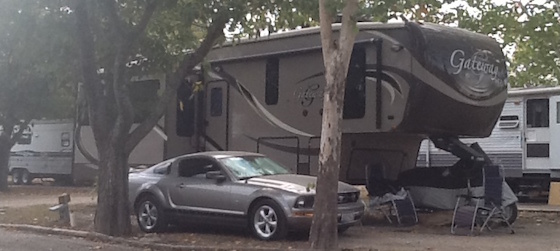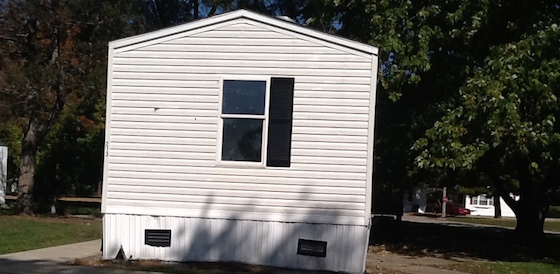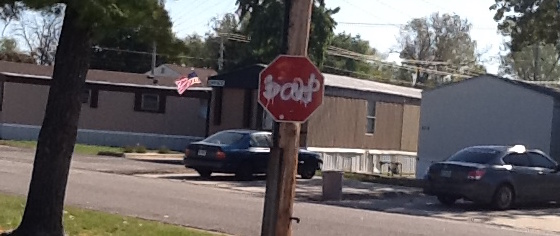Want to know the fastest, cheapest, easiest way to fill vacant lots in your mobile home park? The answer is simple: bring in RVs. RVs – short for “recreational vehicles” – offer immediate gratification of increasing your occupancy rate, while not costing you a dime. Many park owners overlook this option to battle park vacancy
But didn’t you tell me that RVs don’t count when you evaluate a park?
Sure did. That’s when you’re buying a park. But what we’re talking about is filling those vacant lots post-closing. We would never value RV income the same as mobile home income, as RVs can move at the drop of a hat, whereas mobile homes are stuck for life. But once you own the park – based on mobile home lot rent valuation only – every penny of extra revenue you bring in goes in your pocket, regardless of whether it can be pulled by a car or not. If you ever reached 100% occupancy and had that one final mobile home that wanted to move in, you could always non-renew one of those RVs and make way for the “park equity builder”. So there’s no way that having a ton of RVs in your vacant lots can be a bad thing – particularly if your goal is to make money.
No capital investment
When you buy a mobile home to fill a vacant lot, it can cost you $20,000 to $30,000 when you include site preparation, the home, the move, the set, the skirting, the AC, the deck, and the utility hook-ups. However, when you move in an RV the cost is zilch. If you have to fill 20 vacant lots, that’s going to cost you $400,000 to $600,000 in cash for mobile homes. If you fill those 20 lots with RVs, the cost is zero. Which would you rather pay?
More attractive than mobile homes
It’s a fact: RVs are more attractive than mobile homes. That’s always been the truth. There is a kind of art form to RVs – go to the RV/MH Hall of Fame in Elkhart, Indiana if you want proof. The RV has always been the bastion of the affluent, and the designs are significantly better in all regards. While mobile homes try to look like a normal house, RVs have not chip on their shoulders, as they’ve been cool since the 1920s. There was an RV in the Neiman Marcus catalog a few years ago, while there has never been a mobile home featured (and unlikely ever will).
More upscale clientele
Typically, the guy in the RV is the most affluent in the entire mobile home park. His RV is worth maybe three to ten times more than the surrounding mobile homes, and he drives a new car that is towed behind. That’s not to say that all RV users are rich, but the majority are at least middle class, and that’s a superior demographic to your minimum wage clientele. RVs give your park a certain ambiance that is higher than it would have otherwise.
Ability to fill lots quickly
Even if you have a ton of capital, you cannot fill lots that quickly by buying and bringing in mobile homes. It takes time to get them delivered, and then you have to set them up and get them occupied. A fast operator can process a couple homes a month. But you can fill 10 lots in one day with RVs. We had that happen in our park in Pontiac, Illinois. We picked up around 10 RVs in our park unexpectedly – virtually overnight.
Next steps
If you are sold on the idea of filling lots with RVs, here are the steps you have to take to start the process:
- Check the permit for your park and see if you are allowed to have RVs and, if so, if there are any restrictions on the quantity you are allowed to have.
- Build a really good web page for your park and make sure that if someone enters the name of the city your park is located in and the word “RV” that your park pops up on the RV park list.
- Contact the sources of large quantities of RVs that stay for months and/or years. These includes announcements of new construction projects (pipelines, highways, refineries, etc.), new employers who are hiring, and annual events such as fairs and the Indy 500.
- Put informational flyers in places that RVs frequent, such as nearby rest stops and propane dealers.
- Put a large, attractive sign in front of your park that says “RV’s Welcome”.
Marketing to RVs in not costly, and you can go from 0 to 60 in about a week.
Conclusion
RVs are a great resource to fill vacant lots. If you are trying to gain occupancy quickly and at little cost, then RVs may be an important part of your formula
>




